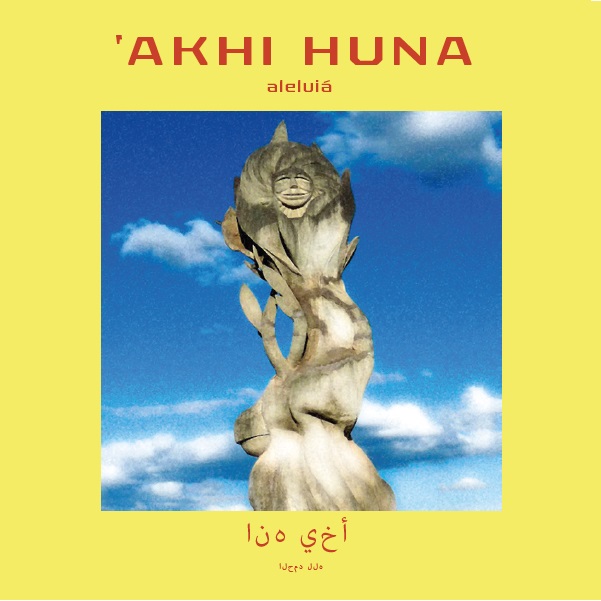Aleluiá is a mixtape heavily influenced by the musical Missa dos Quilombos by Milton Nascimento and Pedro Casaldáliga. It was recorded between March and June 2020 and was released in October of the same year. The brothers, Mansur JP and Dila Caju, shared all the compositions and arrangements, played all the instruments, mixed, and mastered. The Brazilian label Lombra Records pressed a limited edition of Aleluiá into 7-inch vinyls.
_ ‘akhi huna

Digital Collage by Ana Isabel Mansur, sculpture by Emicles Nogueira Nobre, 25.4 x 25.4 cm
Curator’s commentary:
This heavenly album vinyl cover holds many layers. The brothers’ musical duo is baptized ‘akhi huna, meaning “my brother is here” in Arabic. Their project caught my attention as a fellow Latin American, prompting me to research the story, sound, and visuals of a band from Sobradinho, close to Brasilia, presenting to the world with an Arabic name.
Mansur JP and Dila Caju were living on different continents until the pandemic, but 2020 brought them back together. Acknowledging each other’s presence and potential collaboration, they looked beyond their mother tongue of Portuguese. Instead, they chose to dig into the Arabic language once spoken by their Lebanese ancestors who made a home in Brazil a few generations back.
While going over ‘akhi huna’s vinyl covers, I stumbled upon their EP Aleluiá, meaning “hallelujah”. What we see is the band’s name and album name in the Latin alphabet on the top. But what does the lower text say? أخ ي ه ن ا is a disjointed spelling of أخي هنا [‘akhi huna], making me think of an energetic attempt to write Arabic. Below this, we see the letters ه ل ل د م ح ل ا, initially seeming a mystery code, which upon closer inspection reveal to be the disjointed and reverse spelling of الحمد لله [alhamdulillah, Arabic for “hallelujah”]. These two lines of the album cover in Arabic prompt me to think about the intention that lays under this album cover, a confident exercise of two electrical impulses of music and language, beginning to form a circuit of sound and spelling. In regrouping with ancestry and returning to a language spoken kilometers apart, the disjointment and reversal of words is to be celebrated and encouraged.